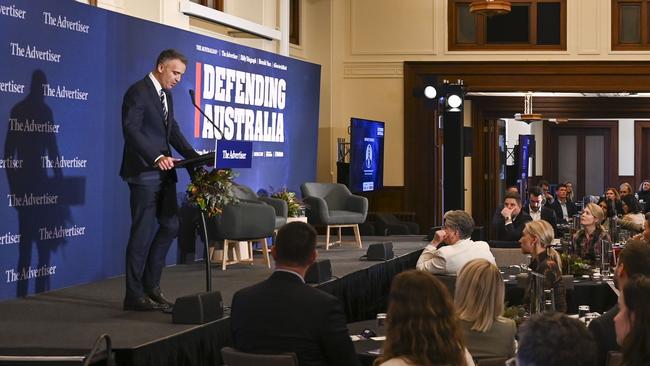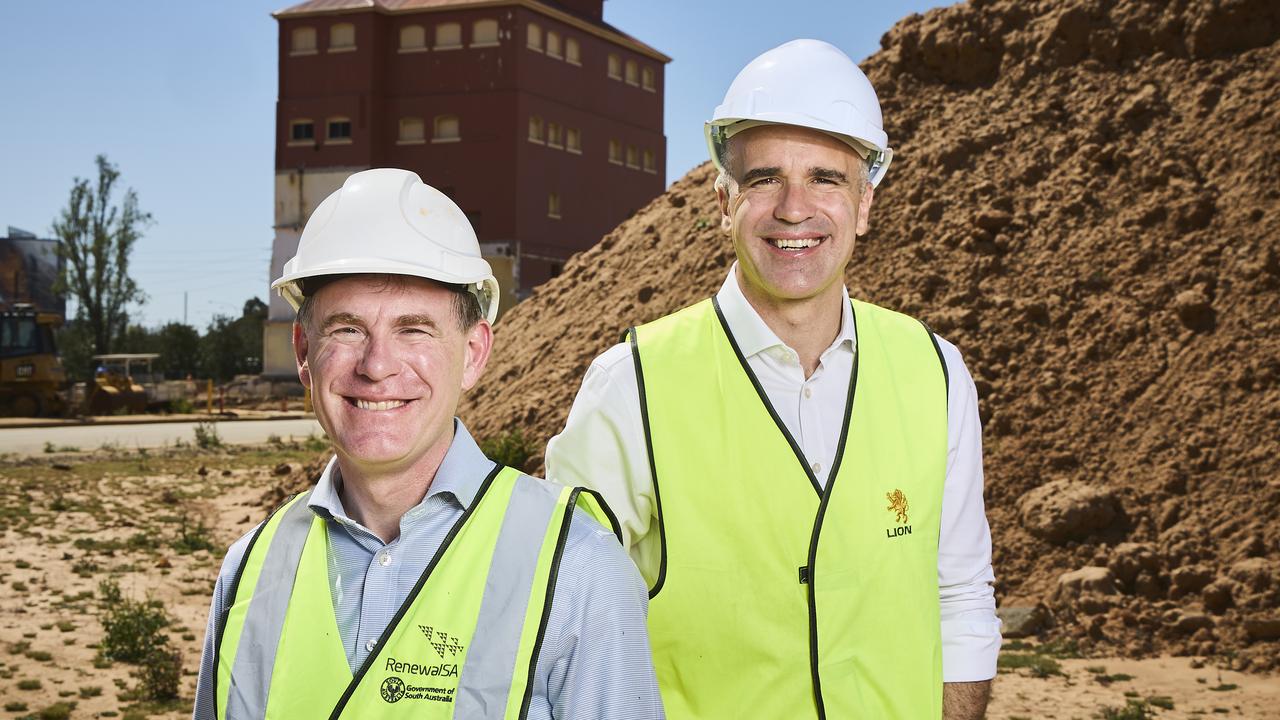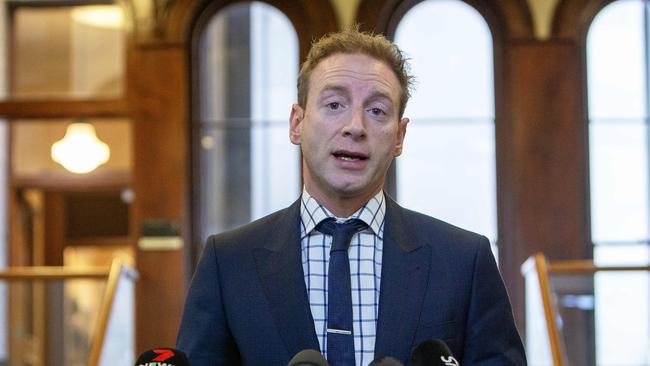Malinauskas pivots from ramping to housing crisis | Paul Starick
Expect Labor to pivot further from fixing the ambulance crisis – and be sceptical, writes Paul Starick.
Opinion
Don't miss out on the headlines from Opinion. Followed categories will be added to My News.
Budgets are a blueprint for a government’s priorities – they dole out cold, hard cash to fund them.
So when Treasurer Stephen Mullighan delivers his third state budget, expect it to further confirm the government’s pivot away from “fixing the ramping crisis”.
Housing is the new ramping.
This was made abundantly clear at The Advertiser’s Defending Australia summit in Canberra on Tuesday, when Premier Peter Malinauskas was thrust into the national spotlight as the keynote speaker.
Seizing the opportunity to create national news, he thrust forward a fresh approach to federal plans to take pressure of housing supply by reducing Australia’s annual migration intake.
He said a healthy influx of skilled migrants would be needed to backfill the boilermakers, electricians, mechanics and other domestic workers who would flock to the Adelaide AUKUS nuclear-powered submarine construction – the centrepiece of a $368bn project.
“Australia does not have an immigration problem. We have a housing supply problem. Australia urgently needs to build more houses, hundreds of thousands of them, if we are to make housing more available and thus more affordable,” he told the high-powered audience at Old Parliament House.
The Premier clearly has decided the issue he will take to the next election in 2026 will not be fixing the ramping crisis – that was the hot topic that rocketed him to power in 2022. Billions of dollars are being spent but the ramping crisis has not been fixed.

Growing the economy and creating jobs is now the main game.
Mr Malinauskas is styling himself as a transformational leader, in the mould of the state’s longest-serving premier, Sir Thomas Playford, whose legacy he regularly cites.
In his Canberra speech, he evoked Playford’s interventionist approach to building armaments and shipbuilding industries.
Budgets force governments to put their money where their rhetoric has been. Expect a skills budget on June 6, one that is pitched as accelerating the delivery of skills training to grow the future AUKUS workforce.
This strategy will enjoy some bipartisan support.
Opposition Leader David Speirs, who will be absent from parliament on budget day, has consistently championed the necessity for consensus on the multi-generational nuclear-powered submarine project.
Shifting the dial on housing is much trickier.
Mr Malinauskas has removed this as a budget centrepiece by creating a major industry summit on June 25 for “the release of a comprehensive housing road map”.

Newly minted “super” Housing Minister Nick Champion has been charged with producing a policy that will shift the dial on home supply. He will be tested against this objective on June 25 and beyond.
The date is significant. A quarterly water bill rise of about $17.80 is expected when the Essential Services Commission delivers a final regulatory determination after a mid-June meeting.
The Advertiser in March revealed warnings of a $1bn cost to install water and sewerage infrastructure to housing developments, including four parcels of at least 23,700 homes announced by Mr Malinauskas in February last year. Mr Mullighan then flagged softening the expected water bill hike by deepening the state’s $38.2bn debt. A debt-funded state budget raid was expected.

On the other side, the Liberals have proposed lifting stamp duty exemption thresholds for new homes and vacant land, plus cutting stamp duty by $10,000 for established homes up to $750,000.
They also want to make apprentices and trainees exempt from payroll tax.
These are proposals with merit and represent Mr Speirs’ first major economic policy venture.
It would be wise to view promises from either side to fix the housing crisis with similar scepticism to the Labor election vow to fix the ramping crisis.
Neither major party has a great track record of increasing supply in Adelaide.
In the face of crippling interest rates and with limited financial resources, there’s only so much state governments can do to solve the housing crisis.






